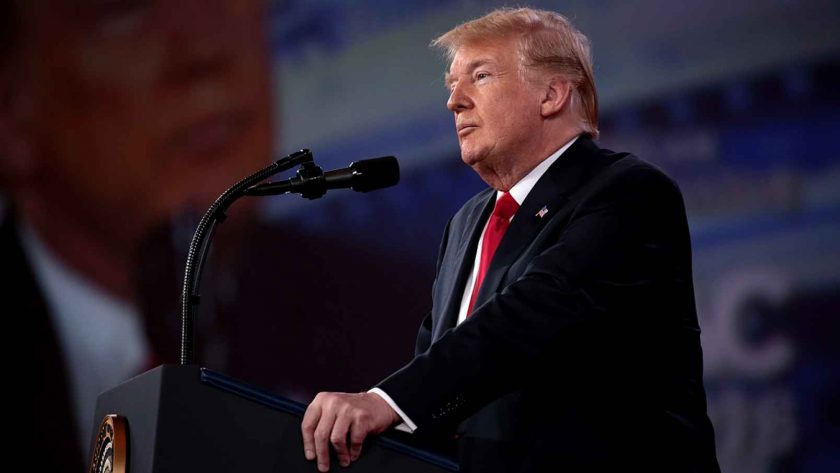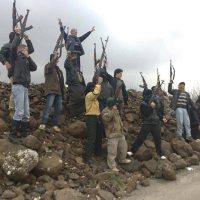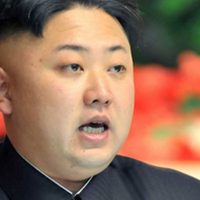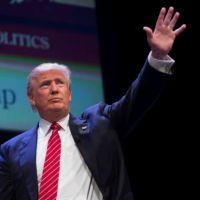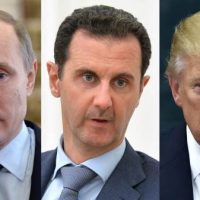It’s really not that complicated.
But President Trump’s Syria strikes have reopened the debate over what defines his foreign policy. Is he an interventionist or an isolationist? Foreign policy experts claim that he’s making it up as he goes along.
But they’re not paying attention.
President Trump’s foreign policy has two consistent elements. From threatening Kim Jong-Un on Twitter to moving the embassy to Jerusalem to bombing Syria, he applies pressure and then he disengages.
Here’s how that works.
First, Trump pressures the most intransigent and hostile side in the conflict. Second, he divests the United States from the conflict leaving the relevant parties to find a way to work it out.
North Korea had spent decades using its nuclear program to bully its neighbors and the United States. Previous administrations had given the Communist dictatorship $1.3 billion in aid to keep it from developing its nuclear program. These bribes failed because they incentivized the nuclear program.
Nukes are the only thing keeping North Korea from being just another failed Communist dictatorship.
Instead, Trump called North Korea’s bluff. He ignored all the diplomatic advice and ridiculed its regime. He made it clear that the United States was not afraid of North Korean nukes. The experts shrieked. They warned that Kim Jong-Un wouldn’t take this Twitter abuse and we would be in for a nuclear war.
But the Norks folded.
The Communist regime held high level talks with the United States and South Korea. It’s reportedly planning to announce an official end to the war. That probably won’t amount to much in the long term, but it shifts more of the responsibility for the conflict away from the United States and to the Koreas.
Trump accomplished more with a few tweets than previous administrations had with billions of dollars.
An instinctive negotiator, Trump’s realpolitik genius lay not in ideology, but in grasping the core negotiating strategy of the enemy and then negating it by taking away its reason not to make a deal.
When Trump called North Korea’s bluff, its nuclear weapons program was transformed from an asset that it used to blackmail aid from its potential targets into a liability that could end with its destruction.
Trump did the same thing with Jerusalem.
The PLO had refused to make a deal with Israel because its constant refusals to negotiate allowed it to keep escalating its demands. The more it sabotaged negotiations, the better the offers became.
The PLO’s Palestinian Authority didn’t have nukes, but its weapon of choice was terrorism. And it had played the same game as North Korea for decades. It would begin negotiations, demand payoffs, then sabotage negotiations, threaten violence, and demand an even higher payoff for ending the violence.
The PLO/PA knew that it could get the best possible deal by not making a deal.
Just like North Korea, Trump cut the PLO down to size by negating its negotiating strategy. Instead of the deal getting better and better, Trump showed that it would get worse by taking Jerusalem off the table.
Previous administrations had rewarded the PLO/PA for its refusal to make a deal by sweetening the pot. Instead Trump threatened to take away Jerusalem, the biggest prize in the pot. And then he warned that the PLO would lose even more of its demands if the terrorist group continued to refuse to make a deal.
Unlike Clinton, Bush and Obama, Trump did not overcompensate for the US-Israel relationship by pressuring the Jewish State to make a deal with the PLO so as to seem like an “honest broker”. Instead he leveraged that relationship to move the United States away from the conflict.
Moving the embassy to Jerusalem sends the signal that the US-Israel relationship doesn’t depend on a deal with the PLO. That’s the opposite of the messages that Clinton, Bush and Obama had sent.
Their old failed diplomacy that made the US-Israel relationship dependent on a deal with the PLO had given the terrorists control over our foreign policy. The US and Israel were perversely forced into appeasing the terrorists of the PLO just to be able to maintain a relationship with each other.
See the full story here.
Want more BFT? Leave us a voicemail on our page or follow us on Twitter @BFT_Podcast and Facebook @BluntForceTruthPodcast. We want to hear from you! There’s no better place to get the #BluntForceTruth.

